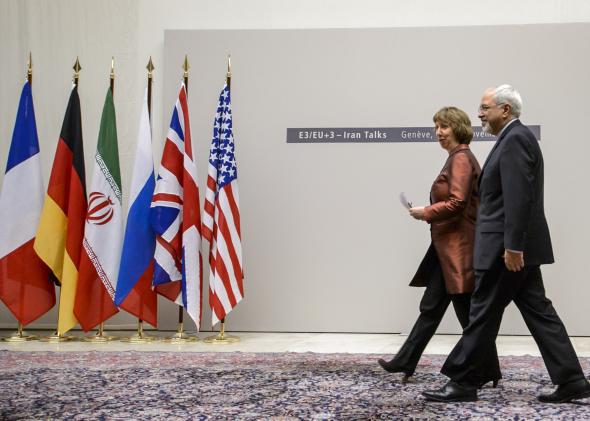As people continue to debate the merits of the preliminary deal to halt Iranian nuclear weapons research (I agree with Fred Kaplan as usual), let me note something I wrote back in March 2012—a war with Iran could be an economic disaster.
The economic policy and foreign policy streams don’t normally cross in this way, but if you try to just bracket all the international relations issues and imagine what would follow from a “large and sudden disruption of Gulf oil supplies” (imagine a freak typhoon or whatever), you’ll see that you’re looking at something fairly disastrous. I am a strong proponent of targeting higher gasoline prices via a higher gasoline tax, but the idea would be to phase the new policy in over time so that as people buy new vehicles they shift to less oil-intensive transportation options. In the event of a sudden disruption of oil supplies leading to suddenly higher prices, there’s a limited amount people can do to reduce the quantity of gasoline they consume.
That means two things will happen. One is that people will have to reduce the quantity of everything else that they consume (fewer meals out, fewer Black Friday apparel purchases, delay replacing that coffee table you hate), and the other is that the prices of many consumer goods will rise due to increased transportation costs.
In other words, people will lose jobs, while at the same time central banks will face increased pressure for tighter money.
How bad would the damage be? It’s very difficult to say. The consequences of launching a war would be unpredictable. But we can say for sure what the direction of the change would be. A military strike would definitely disrupt supplies of a key commodity and definitive have a negative impact on the labor market. Much less clear is what the impact of a war would be on Iran’s nuclear program. On the one hand, you could blow up some stuff that’s used in the nuclear program. On the other hand, getting bombed by a great power is exactly the kind of thing that’s likely to persuade a government and a population that a go-for-broke effort to obtain a nuclear deterrent makes sense as national policy.
Since the deal’s been announced, I’ve heard a number of skeptics proclaim that the problem with it is basically that you can’t trust the Iranians. Well if you can’t trust the Iranians, you can’t make any deal with them. That means either an Iranian nuclear weapon or a war, which means you need to give serious thought to what that war might mean for the world.
